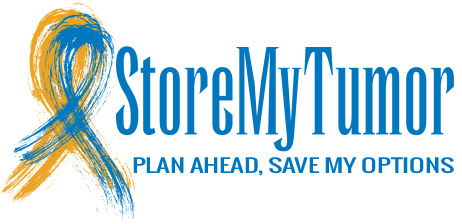What Do You Do When Someone You Love Gets Lung Cancer? You Spend a Lot of Time Researching What Can Best Help Them!
Your husband is diagnosed with Lung Cancer. You have been married for 15 years and have 3 young children. You are in shock and your husband can’t understand how it is possible that he has cancer of any kind. He has always been in good health and never smoked or even drank more than the occasional beer at dinner or for the big game. You are the head of the household now and it’s your job to make sure your husband has the best care so that he can be there for you and your family.
You take to the internet, researching all you can about lung cancer, it’s treatments, etc. You find out that the standard of care is typically surgery, chemotherapy and radiation. But even if all that is done and he is in remission, will he stay that way? You worry that he may not so you do even more research…
If you are lucky, you find out that a vital component of cancer treatment is tumor preservation (and the majority finds this information at a late stage – after they have done their surgery) But why is that important? and is it right for him, and who does it? You will quickly find out that a service called www.StoreMyTumor.com can help, so you call them.



Then you learn that if you preserve your husband’s tumor / biopsy you will have the ability to personalize and tailor treatments to ones that are more likely to work. Then you wonder… doesn’t the hospital do that? Hospitals do NOT preserve the tumor cells alive, and routinely discard excess tumors as medical waste. Patients have to plan it on their end at this stage. StoreMyTumor offers a service that can help you collect, process and store your tumors in multiple formats so that you continue to have access for advanced diagnostics and personalized immunotherapies.
Why Would Anyone Preserve a Tumor?
Each tumor is like a fingerprint, and contains many unique characteristics that can be studied and analyzed into specific recommendations that become your personalized cancer treatment roadmap, such as:
- Genomic testing– checks for hundreds of targets on the tumor and matches these targets to chemo/drugs and experimental drugs designed for that target.
- Chemo-sensitivity testing– tests which chemo is most effective. This is vital because chemo has toxic side effects.
- Drug screening / organoids – tests a wider range (100+) of drugs and combination of drugs, including, chemo, targeted drugs, and immunotherapy drugs.
- Immunotherapy is also another area patient consider. It educates your own immune system to fight the cancer cells. Immunotherapy is experimental, typically considered in parallel to drugs and standard treatments, and helps extend time in remission.
Summary of What One Can Do with the Preserved Tumor:
| Diagnostic/Treatment Options | WITH MY Tumor | WithOUT Tumor |
|---|---|---|
| Chemotherapy and radiation | ||
| Cancer vaccines | ||
| Chemo-sensitivity testing | ||
| T-Cell therapy | ||
| Genetic sequencing | ||
| Drug screening panels | ||
| Molecular Profiling | ||
| Future treatments that target your tumor |
Talk to us
Personalized medicine is transforming our thinking about designing effective treatments. If you have questions, you can also set up a time for a call. Knowledge is Power! Know All Your Options! Take control! For more information: call +1 267.702.5501 or schedule a free private consultation.

